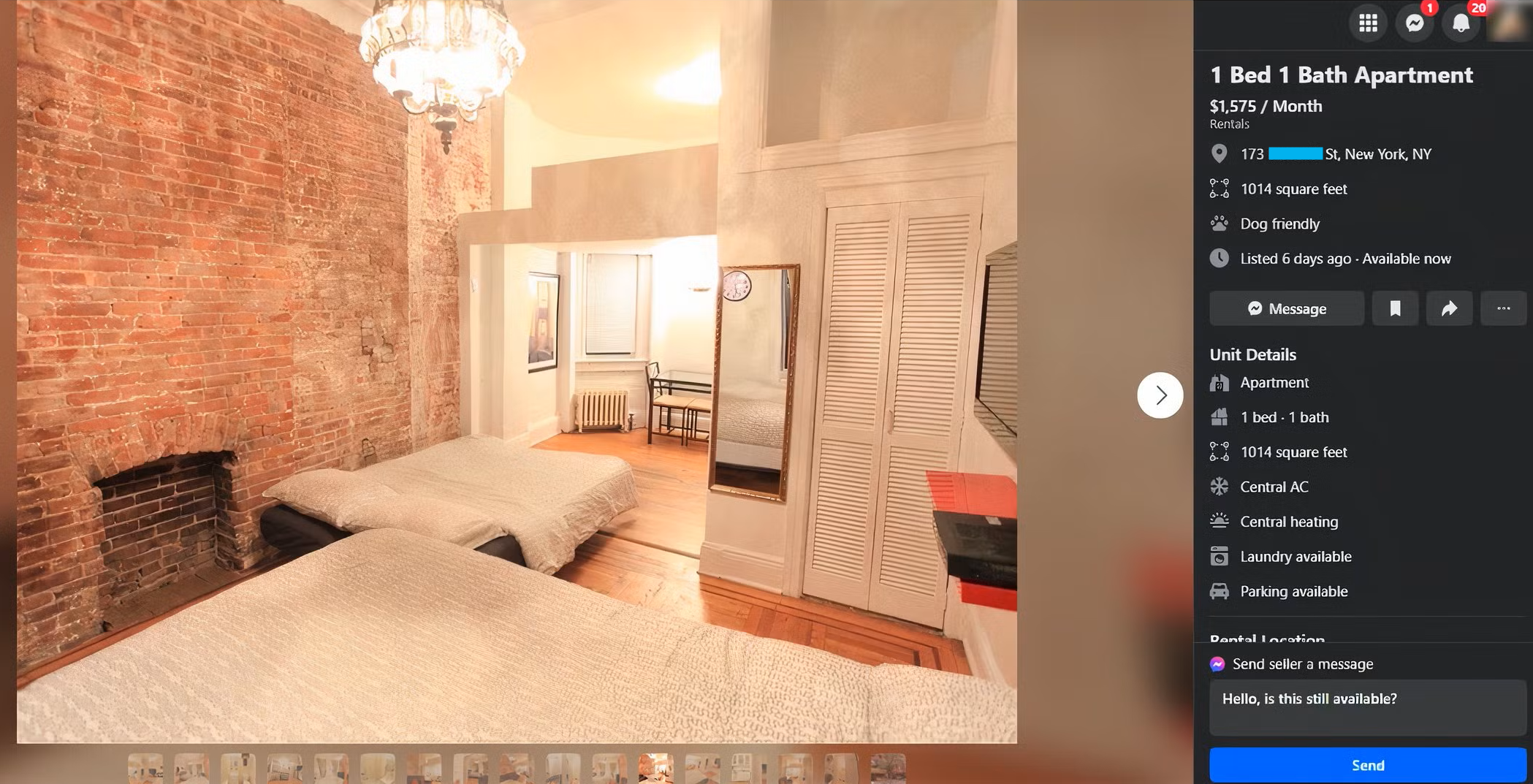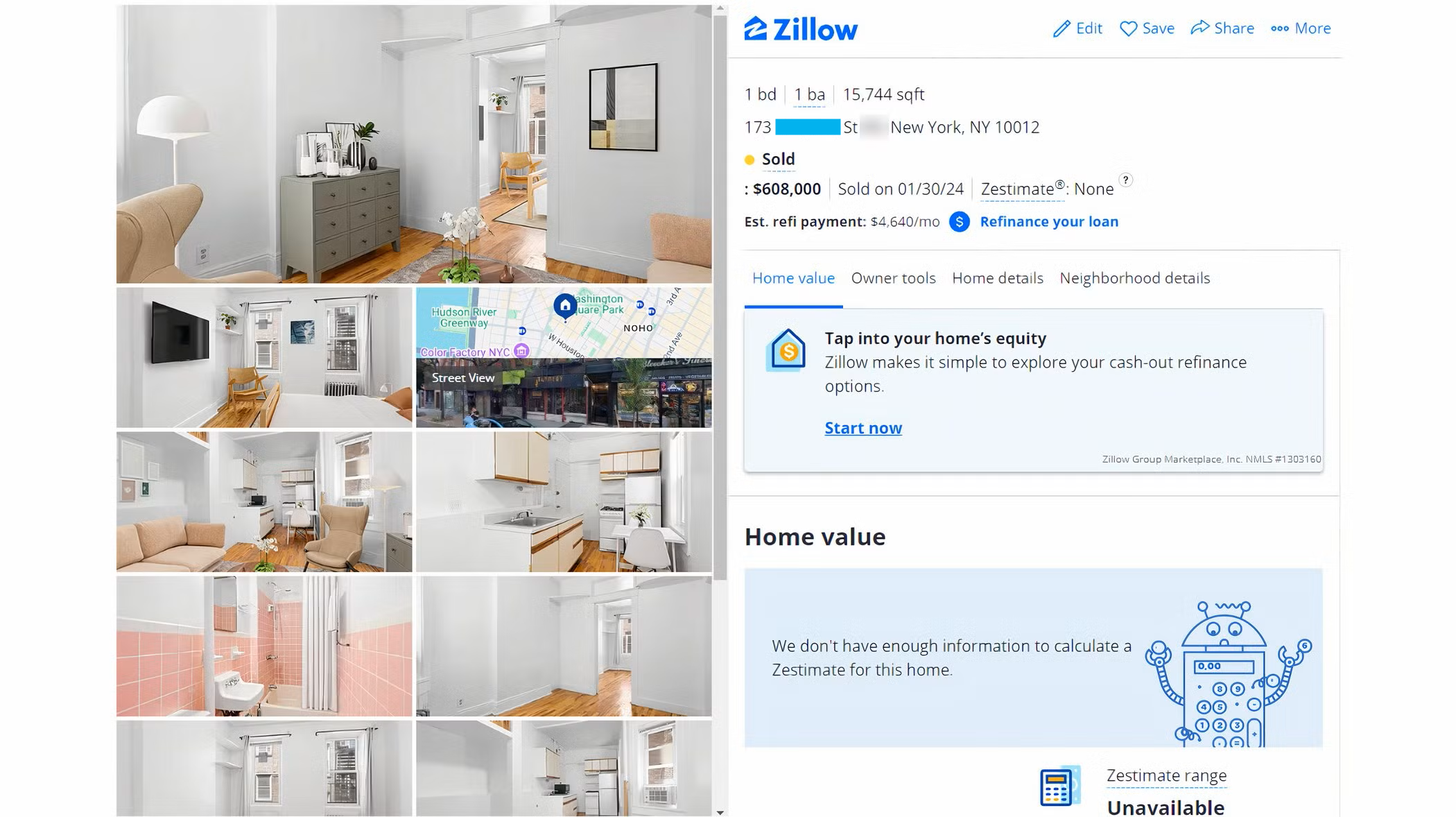Key Takeaways
- Avoid apartment scams by looking for common red flags like unrealistic prices, strange apartment descriptions, or unconventional leasing terms.
- Don’t fall for high-pressure tactics or requests for payment upfront. Verify the legitimacy of the listing before taking any actions.
- Stay informed about the housing market, cross-check listings, and work with established brokers if you’re able.
Moving is a stressful time, and everyone wants to snag their dream home. There can be a lot of competition for those perfect apartments, especially in urban areas. It’s up to you to weed out the fake listings and scammer brokers to keep yourself (and your finances) safe.
Common Red Flags for Apartment Listings
There are so many online scams out there, from phishing to fake job listings. Unfortunately, social media is also full of fraudsters, so you’ll want to be extra careful if you’re using a site like Facebook Marketplace to look for a place to rent. Luckily, there’s lots of obvious red flags to watch out for when you’re on the apartment hunt.
There are some basic requirements that you should expect from a real apartment listing: an accurate description, photos, a realistic market price, and valid contact information. It’s surprising how many people will overlook a red flag because they’re distracted by gorgeous photos or an unbelievable price tag. Scammers know this and will take advantage of it!
The first rule when looking at apartment listings is the obvious: Is this too good to be true?
If you’re seeing an apartment with a patio, multiple bedrooms, in the best neighborhood, for the price of what you’d normally pay for a shared room with roommates, that should be a red flag to you. Landlords definitely know the value of their rentals and will price them accordingly, so anything wildly under priced is very likely to be a scam.
Here are some other red flags to look for in an apartment listing:
Weird Language
Sometimes an apartment listing’s description will have strange wording, or they will ‘overshare’ details that a normal listing wouldn’t include. For example: “To build up confidence and gain peace of mind, I have attached a copy of my PASSPORT to this email.” Nobody does that. This is a scam.
Unconventional Leasing Scenarios
On top of weird language, if you’re dealing with a complete stranger, you won’t want to entertain any strange leasing scenarios. Here’s an example from a scam listing from a supposed apartment owner:
“Regarding the process, you will have to deposit the first-month rent + last month’s rent to Airbnb so that they can proceed with the shipping of the rental package. Please note that Airbnb will HOLD your deposit (escrow) until you will receive [author’s note: Spot that weird grammar!] the rental package (keys and documents) and go and inspect the apartment. Please know that I will pay for all the fees that Airbnb will take.”
Trusting some random person on their word that they will eat any fees incurred by this weird Airbnb apartment leasing situation? That’s not how any of this works. No thanks, sorry not sorry.
Cashier’s Checks and Wire Transfers
This should be a major red flag if you ever see it in an apartment listing. Real landlords will accept multiple forms of payment that are traceable. Cashier’s checks and wire transfers are a scammer’s favorite because once money is sent, it’s extremely hard to recover the funds. CashApp, Zelle, and Bitcoin are also abnormal payment types for legitimate rentals and should be considered a red flag for an apartment listing. You’ll also want to avoid any listing that requires some kind of payment or fee upfront without seeing the apartment first or signing any documentation.
Limited Time & Pressure Tactics
Scammers know that moving can sometimes be a last-minute situation, and they will try to rush you into making a bad decision with emotional manipulation. Or they will say that the apartment is in high demand, and you need to act fast. This kind of approach tries to give you a sense of urgency, so you will potentially make a rash decision that you wouldn’t have made if you had time to think it over.
How to Stay Vigilant Against Apartment Scams
It’s not all doom and gloom. There are real apartments out there, but you need to know how to stay safe when you’re scrolling through listings. Here’s my advice on how to protect yourself from apartment scams:
Know Your Housing Market
Even before it’s time to start searching for a new place, keep an eye on the prices for apartments in your target neighborhoods. Use a trusted site like Zillow or Apartments.com to see what the average prices are, so you know what to expect. Stay on your toes though, because there can still be some scam listings on these sites (but they do get reported and taken down faster than on a site like Craigslist or Facebook). You can also use these trusted real estate sites to cross-check a potentially sketchy apartment listing. If a price seems too good to be true, check on a different site to see what the market value is for the apartment you’re looking at.
Don’t Sign or Send Money Without Seeing the Apartment
When a scammer is pressuring you to sign a lease or send a deposit because of high demand or some other time-limited reason, they are counting on you to react with urgency and act without thinking it through. Don’t fall for it! Make sure you’ve seen the apartment and verified the listing, broker, landlord, and anyone else involved.
You should also search for the apartment’s address to see if it shows up on any real estate websites. Sometimes you’ll find that the scammer has pulled images from another listing to entice you, and that the real apartment at that location looks nothing like the scammer’s offering.
Take this “apartment” available on Facebook marketplace. It’s warm and inviting—and fake.
Searching for the address turned up the actual apartment, which is completely different from the fake listing on Facebook marketplace.
Safeguard Your Personal Info
Apartment applications usually require some of your personal information. Be careful not to provide your banking information, social security number, or other key details until you are sure that the apartment and the broker or landlord you’re dealing with is legitimate. Even then, be smart about how you send your personal information. Use a secure transfer site, or a password-protected ZIP file to ensure that only the right people have access to your information.
Work with an Established Broker
This is the expensive option, but if you can afford it, working with a real estate broker will ensure that you’re dealing with real apartment listings. They will know which apartments are about to hit the market, what the prices should be, and how to work with the landlord.
While there are unfortunately a lot of scams out there, staying educated and vigilant about the housing market in your area will help you to double-check your instincts so you can feel assured that the apartment you’re interested in is the real deal. Scams are constantly evolving, so join a subreddit in your local area to ask others about questionable listings and see fraudulent listings that other people have already flagged. Good luck out there!




